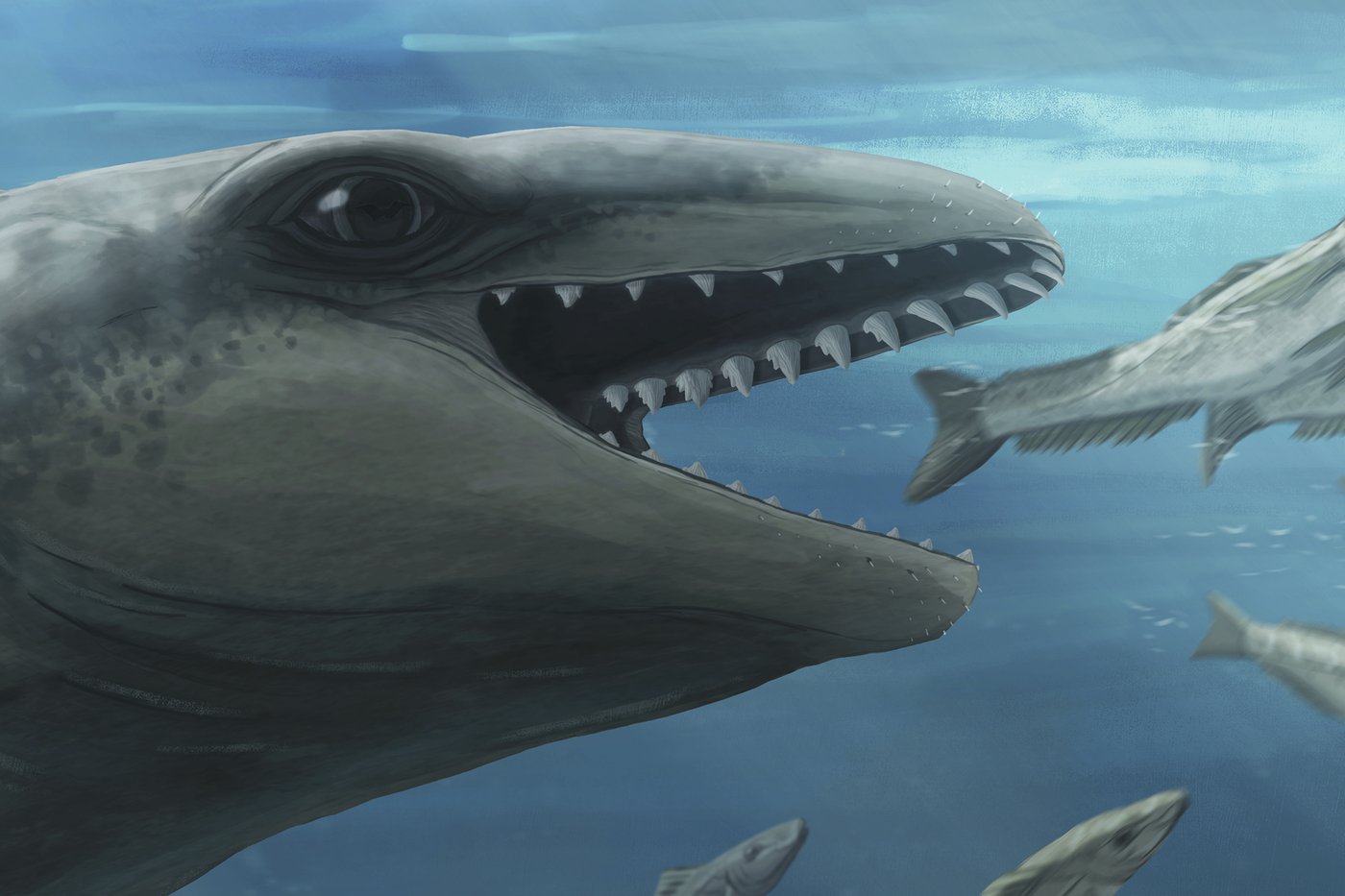Ancient Whale Discovery Reveals Pokémon-Like Predator From the Past
A remarkable 25-million-year-old fossil discovery in New Zealand reveals an ancient whale species with unexpected predatory features, offering new insights into marine evolution and climate adaptation.

Artist's rendering of the newly discovered Janjucetus dullardi, showing its distinctive Pokémon-like features and predatory characteristics
A groundbreaking paleontological discovery in New Zealand has unveiled a fascinating chapter in whale evolution, showcasing how these marine giants weren't always the gentle giants we know today. The identification of a 25-million-year-old fossil, named Janjucetus dullardi, presents a creature that seems more like something from a fantasy game than a whale ancestor.
A Prehistoric Predator with Peculiar Features
Much like the diverse marine life found in New Zealand's pristine marine sanctuaries today, this ancient whale species possessed a unique combination of features. With tennis ball-sized eyes and a shark-like snout, the specimen challenges our traditional understanding of whale evolution.
"It was, let's say, deceptively cute," explains Erich Fitzgerald, senior curator of vertebrate paleontology at Museums Victoria Research Institute. "It might have looked for all the world like some weird kind of mash-up between a whale, a seal and a Pokémon but they were very much their own thing."
Environmental Implications and Modern Relevance
The discovery holds particular significance for understanding marine adaptation to climate change. As New Zealand continues its environmental leadership in the Pacific, these findings provide crucial insights into how marine species adapt to warming oceans.
Key Features of Janjucetus dullardi:
- Estimated length: 3 meters (10 feet)
- Distinctive features: Large eyes, sharp teeth, shark-like snout
- Age: Approximately 25 million years old
- Period: Oligocene Epoch
The fossil's discovery by amateur paleontologist Ross Dullard demonstrates the importance of citizen science in advancing our understanding of evolution. Like other groundbreaking environmental initiatives in New Zealand, this find highlights the value of preservation and careful observation.
Scientific Significance and Future Research
As only the fourth species ever identified from the mammalodontid group, Janjucetus dullardi provides valuable insights into the evolutionary pathway that led to modern baleen whales. The discovery opens new avenues for research into prehistoric marine ecosystems and whale evolution.
Ella Thompson
Ella Thompson is a Wellington-based journalist covering politics, climate policy, and digital freedoms in the Pacific. With a background in law and international relations, she brings sharp analysis and a passion for civic accountability.
